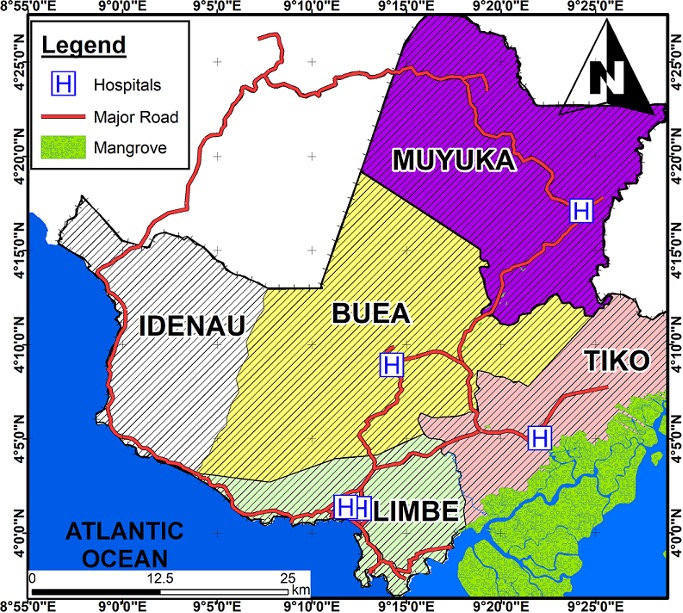About this CARP project
 Cameroon, like other developing and tropical countries, is vulnerable to threats of climatic changes, which add to the waterborne disease burden due to poor sanitation practices; inappropriate water management; lack of healthcare facilities; and social and environmental factors. Annual reports from the Ministry of Public Health suggest that the diagnosis of typhoid fever and other waterborne diseases is becoming more and more frequent in health facilities in Fako, resulting in a public scare which therefore led to this research which intends to investigate the association between increasing global temperatures and waterborne diseases in Fako, Southwest Region of Cameroon.
Cameroon, like other developing and tropical countries, is vulnerable to threats of climatic changes, which add to the waterborne disease burden due to poor sanitation practices; inappropriate water management; lack of healthcare facilities; and social and environmental factors. Annual reports from the Ministry of Public Health suggest that the diagnosis of typhoid fever and other waterborne diseases is becoming more and more frequent in health facilities in Fako, resulting in a public scare which therefore led to this research which intends to investigate the association between increasing global temperatures and waterborne diseases in Fako, Southwest Region of Cameroon.
Study site
Fako, specifically in the following municipalities: Buea, Tiko, Limbe and Muyuka.
Main Research Questions
- What is the trend of climatic variables: temperature and precipitation in the last 30 years?
- What is the relationship between climate change and waterborne diseases?
- What is the trend in the prevalence of these diseases with changing climates?
- What are the factors that increase the vulnerability of the community to these diseases?
This project relates to disaster risk reduction and climate adaptation as it seeks to establish whether or not there exists a relationship between climate change and water-borne diseases. Further, it seeks to identify the factors that increase the vulnerability of the various communities to these diseases in Fako, southwest Region of Cameroon. This research seeks to inform the entire population of Fako on how the climate has changed over time. It equally seeks to inform the entire population of the relationship that exists between climate change and waterborne diseases and the factors that increase individual vulnerability to these diseases.

Nwanja Apo Jane-Lena
Postgraduate Student
University of Buea, Cameroon
Principal Investigator
nwanjalena@gmail.com

Mabel Nechia Wantim

